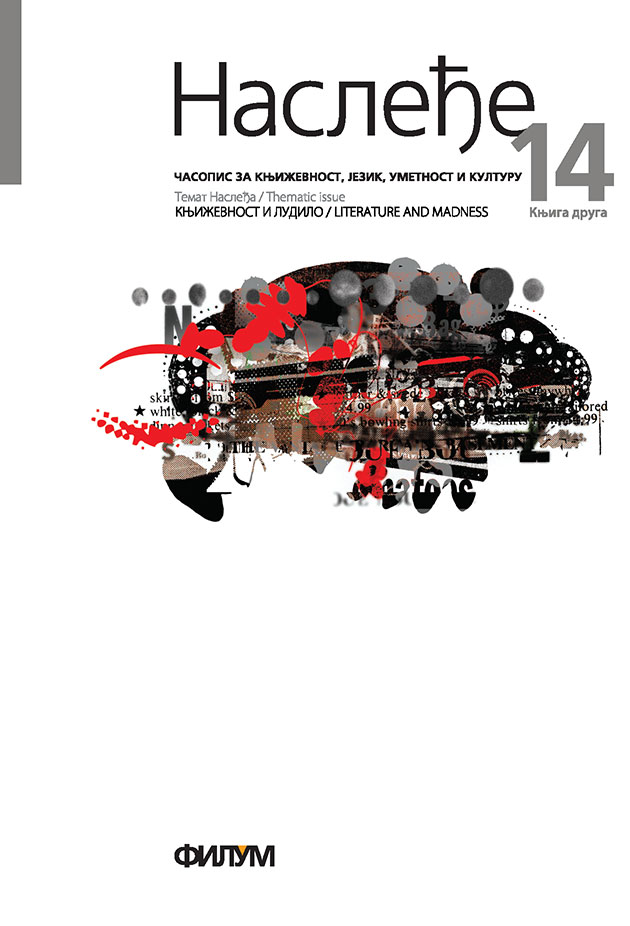MADNESS AND THE ALTERNATIVE NARRATIVES
Keywords:
Приповедање, приповедач у првом лицу, лудило, натприродноAbstract
The paper focuses upon the motive of madness, seen as a touchstone for the narrator’s reliability in the novels The Turn of the Screw by Henry James and The Little Stranger by Sarah Waters. The supernatural serves as the criterion of the characters’ mental instability, since the Freudian criticism has for decades presented the visions, apparitions and other supernatural phenomena as symptoms of a deeper psychological disorder. However, the recently published The Little Stranger by Sarah Waters offers the supernatural as a new strategy of reading class and inscribing class differences into the postwar Britain.
References
1. Beidler, Peter (ur), The Turn of the Screw, Bedford Books of St. Martin’s Press, Boston, New York, 1995.
2. Felman, Shoshana, Writing and Madness, „Henry James: Madness and the Risks of Practice (Turning the Screw of Interpretation)“, Cornell University Press, Ithaca, New York, 1985.
3. Jones, Alexander E, „Point of View in The Turn of the Screw“, PMLA, March 1959, vol. LXXIV, no 1.
4. Todorov, Cvetan, Uvod u fantastičnu književnost, Rad, Beograd, 1987.
5. Waters, Sarah, The Little Stranger, London, Virago Press, 2009.
2. Felman, Shoshana, Writing and Madness, „Henry James: Madness and the Risks of Practice (Turning the Screw of Interpretation)“, Cornell University Press, Ithaca, New York, 1985.
3. Jones, Alexander E, „Point of View in The Turn of the Screw“, PMLA, March 1959, vol. LXXIV, no 1.
4. Todorov, Cvetan, Uvod u fantastičnu književnost, Rad, Beograd, 1987.
5. Waters, Sarah, The Little Stranger, London, Virago Press, 2009.
Downloads
Published
12-25-2009
How to Cite
Гордић-Петковић, В. (2009). MADNESS AND THE ALTERNATIVE NARRATIVES. Nasleđe, 6(14/2), 21–29. Retrieved from http://www.nasledje.kg.ac.rs/index.php/nasledje/article/view/227
Issue
Section
MADNESS AND SOCIETY






